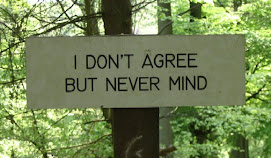Do you read the Highway Code? I don't mean in the lead-up to a test of some sort, but as a regular reminder, or when a new edition is publised?
No, most people don't, so you're not the odd one out.
And part of the reason for it not being a regular read is that there's just so much of it.
The late Paul Smith, of SafeSpeed, created a 100 word Highway Code:
Drive on the left.
Make sure you can see and be seen.
Keep a constant look out all around.
Be aware of signs and regulations and why they are there.
Be predictable.
Recognise and anticipate danger and keep clear space from it.
Always ensure that you can stop within the distance that you know is clear.
Develop your skills.
Give courtesy, co-operation and space to others. Don't obstruct them.
Never take risks, drive unfit or compete with others.
Safety is paramount and far more important than priority.
Take personal responsibility for your safety and the safety of those nearby.
Enjoy
OK, it's not intended as a 'real' replacement for the HMSO book, but he went on to explain:
"We're not seriously suggesting thatthe official Highway Code should be replaced with just 100 words of advice todrivers, but the reason we have done this is deadly serious. We need to pointout to Department for Transport that they have lost sight of the essentialfoundations of road safety, and their new Highway Code further loses sight ofthese foundations in a morass of rules."
"You cannot replace skilled human judgement with a rule book - however big it is- but that's exactly what Department for Transport is trying to do."
"Our Highway Code even includes things that the official version does not. For a start it reminds people that road use can be enjoyable. Without thatenjoyment we wouldn't have the interest to develop the skills that safe use ofthe roads requires."
"Another problem is that the Highway Code tells us what to do, but not how todecide when it is safe. We need to recognise danger and develop our skills forthat."
"We hope that these founding principles will help road users everywhere - notjust drivers - to focus on what's important and stay out of trouble."
"Some of the statements may not be immediately obvious to inexperienced roadusers, but all the common crash causes are covered. When we get it right wedon't crash - but in order to get it right we need the right beliefs, the rightskills and the right attitude. When things go wrong - think back to your lastincident - and you'll probably be able to recognise the cause of the incident in those 100 words. Did you fail to spot the danger? Did you take a riskknowingly? Were you unfit through tiredness, drink or drugs?"
"Use this code, learn from your mistakes and use the roads as safely as youpossibly can. It's enjoyable to do so."
http://groups.yahoo.com/group/SafeSpeedPR/message/440
Monday, 12 May 2008
Subscribe to:
Post Comments (Atom)





No comments:
Post a Comment